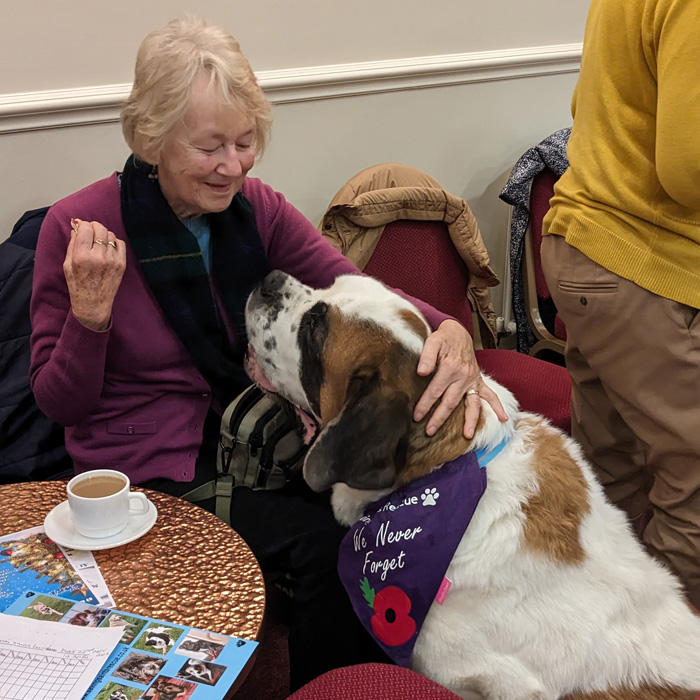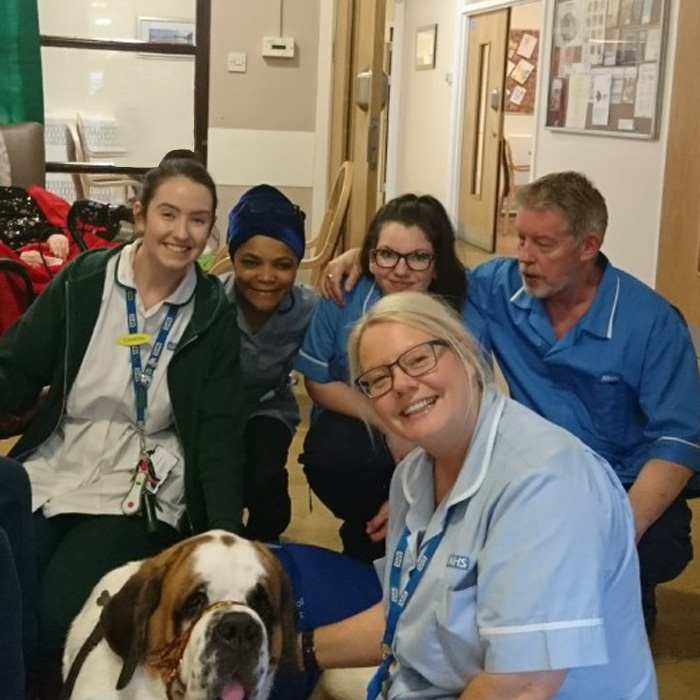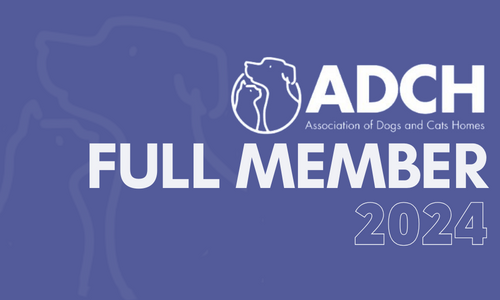
Our Services...
Saving Saints Rescue UK is a charity that focuses on the education, rescue and rehoming of St Bernard dogs (and cross breeds). We work within the UK and across Europe.
As part of our services, we offer pat therapy sessions and find that due to the public perception of St Bernards being linked to rescue, they are seen as 'gentle giants' and children and adults enjoy their company. St Bernards also love nothing better than to be patted and fussed so get equal reward from their work.
We currently offer 2 St Bernard dogs (non-European rescues) in our therapy sessions. All have been
behaviourally assessed as being suitable as pat/companion dogs.
Dotty and Willow are our adult PAT dogs. Rachel our handler has enhanced DBS clearance and have considerable experience of working with vulnerable adults and young people.
Rachel Wesley is a qualified EMDR psychotherapist with a special interest in PTSD and trauma who works within the NHS and privately.
Our Pat Dog Sessions...
Our dogs and handlers are covered by indemnity insurance; all dogs have been vet checked and have up to date vaccinations. We recommend that people with allergies to pets do not participate. We recommend handwashing before and after any interaction with our dogs particularly if you are licked or wish to give them a treat. We ask that participants who have had a stomach upset do not participate until a 48 hour symptom free period has lapsed.
The dog is the responsibility of the handler and will be with the handler at all times on a lead. We would ask that the dog is allowed to meet with participants in a small group of up to 3-4 people at one time. If a participant wishes to meet the dog on their own, we will facilitate that as time allows including visiting patients in their bedrooms. If participants don't wish to pat the dog but wish to sit in the room and watch, please let the handler know so the dog doesn't approach. If a participant wishes to give the dog a treat, again please ask the handler. The dog will approach each participant who should be sitting down and will sit or lie to be stroked. Each group session will last around 20-30 minutes.
We have found that pat dog visits also uplift staff as well as visitors and provide relief from emotionally challenging environments. People's comments post-visit often report positive changes in mood and providing a talking point away from ill health and life difficulties.
We charge £60 per session for up to 90 minutes which allows for around 3-4 groups of people to meet a dog ie up to 16 people. The money raised from this service goes towards the rescue and rehoming costs of dogs in need and covers travel expenses. We are a registered charity and all of our members are volunteers.


Research...
Research into the benefits of therapy dogs has proven they have a positive impact on people's mood and anxiety levels. Scientific research has shown that the presence of a therapy dog can significantly reduce the anxiety levels of people experiencing stressful situations. Petting a therapy dog in a controlled environment has been shown to reduce people's blood pressure and heart-rate, in addition to a general feeling of well-being and sense of connection, releasing endorphins. Dogs as therapy have been used in the UK for many years and the Pets as Therapy charity has been offering its services to hospitals, care homes, hospices and special schools since 1983.
There has been considerable interest in the therapeutic value of dogs in helping people experiencing trauma and health difficulties. This has resulted in a number of schemes both in the USA, Canada and now in the UK which reinforce the benefits of companion dogs. For example the group, Service Dogs UK now offers a scheme to ex-service people suffering from PTSD.
A study undertaken by the US Army Medical Department (Yount, Olmert, Lee, 2012) into a service dog training programme for the treatment of PTSD in service members noted that participants experienced:

An increase in patience, impulse control and emotional regulation

Improved ability to display affect, decrease in emotional numbness

Improved sleep

Decreased depression and increase in positive sense of purpose

Decrease in startle responses

Reduction in anxiety and lowered blood pressure

Decrease in pain medication usage

Increased sense of belonging/acceptance




